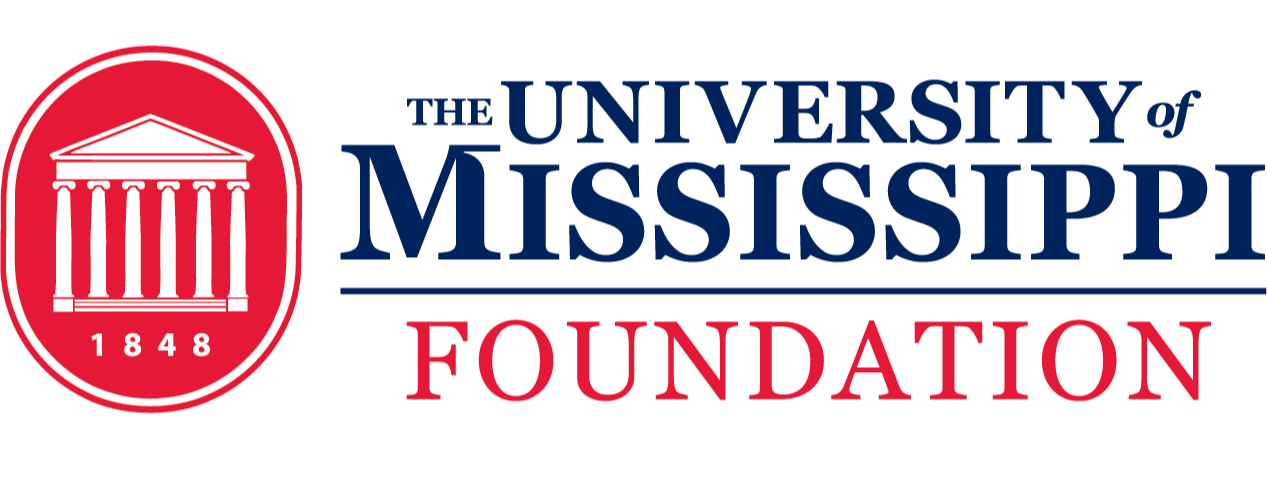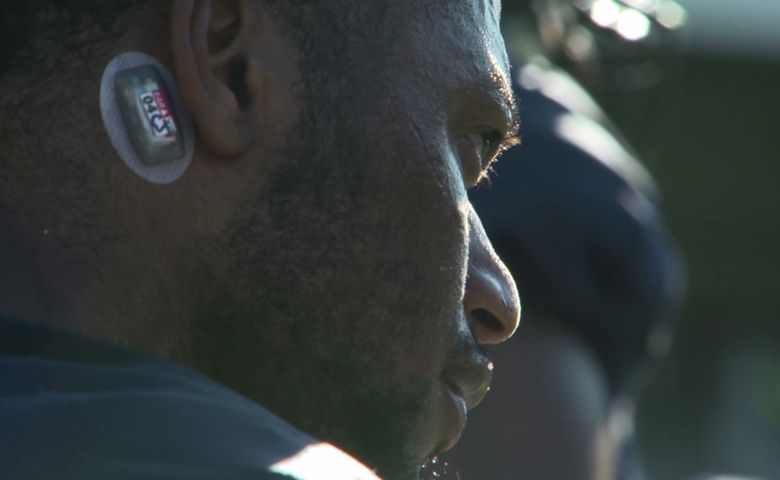A University of Mississippi engineering professor is helping tackle the risks of head injuries in athletes engaged in contact sports, particularly football, and is inviting bright high school students to help with the project this summer.
Matthew Morrison, an assistant professor of electrical engineering, is using high-tech sensors to monitor the forces on athletes’ heads during practice and game conditions. He plans to work with rising high school juniors and seniors this summer to broaden the project, with a goal of aiding early detection and possible solutions to the critical problem of concussion injuries.
The inaugural “Heads in the Game” research program will take place June 28-July 28 on the Oxford campus. The program is made possible by a $200,000 grant from X2 Biosystems and is a partnership with the Ole Miss Department of Intercollegiate Athletics, the UM Center for Health and Sports Performance and the UM Summer College for High School Students.
“We wanted to find a way to demonstrate to Mississippi high school students the importance of math and science research and show them how the study of these disciplines helps people every day,” Morrison explained. “We know high school students are interested in sports, so we hope that our research using state-of-the-art technology with UM athletes will be a way to pique their interest.”
Students from Mississippi, Alabama, Arkansas, Louisiana and Tennessee are eligible to apply for 16 spots in the program. Besides participating in Morrison’s ongoing research concerning concussion management for contact-sport athletes, they will explore the fundamentals of biomedical science, computer science and engineering.
“Through this generous grant from X2 Biosystems, we hope not only to develop tools that can be used by Ole Miss athletics to continue improving the health and well-being of student athletes, but also to give area high school students a chance to improve their own skill set and resume,” Morrison said.
Since 2010, X2 has pioneered the development of wearable impact-monitoring devices and assessment tools to enable more accurate diagnoses and comprehensive management of concussions in sports, military and industrial environments. The National Football League, National Hockey League and Major League Soccer have all adopted X2’s Integrated Concussion Evaluation, or ICE, solution for baseline neurocognitive testing, post-injury evaluation and return-to-play progress monitoring of their athletes.
“X2 was founded to improve concussion safety for the millions of young athletes who benefit from participating in sporting activities, but at the same time are exposed to all manner of physical impacts,” said John Ralston, X2’s CEO. “Helping Ole Miss engineering and athletic performance researchers to instill an appreciation of the underlying science and technology in high school students is a fantastic opportunity to combine athletics and academics in the development of creative young researchers.”
Morrison applied and received an educational research grant from the company in the fall of 2014. In conjunction with the Ole Miss Athletics Health and Sports Performance Center, he began using the X2 impact sensors and ICE software during spring football practice to document head impact during plays. During the Grove Bowl spring football scrimmage last month, players and trainers gathered enough information from immediate readings to implement in-game techniques to ward off potentially damaging hits to the head.
“We are excited about the potential data that will be collected and may ultimately help set standards in health care and athletic performance,” Shannon Singletary, UM senior associate athletics director for health and sports performance said. “This will be a cutting edge program that will benefit high school students as well as athletes of all ages as we explore causes and treatments for sports related issues such as concussions.”
The high school students selected for the “Heads in the Game” program this summer also will help set up and test equipment in Vaught-Hemingway Stadium that athletics staff can use to monitor impact readings in real time from football players wearing X2 devices on the field.
Program participants will also be working closely with UM athletic trainers to develop a mobile device application that will track nutrition and water consumption of athletes to see if those results yield data that are useful for preventing head injuries during competitions.
“Our goal is to help the players play smarter, play safer and play longer,” Morrison said. “We think the implementation of this system will aid trainers in improving players’ form and nutrition to get them back on the field, all while improving their health and safety.”
During the program, students will present their findings during a weekly meeting of Ole Miss athletics coaches, trainers and staff.
“This unique program is definitely one of a kind and an amazing opportunity for high school students,” said Cass Dodgen, director of UM Summer College for High School Students.
Applications are available online for students who would like to be a part of the research program this summer. Each student accepted also gets a $2,000 scholarship to cover the cost of room, board and program activities for four weeks on campus.
“We are looking for motivated, hard-working students who have a love of sports and technology,” Dodgen said.
Students must have a score of 25 or higher on the ACT and at least a 3.0 high school GPA to be eligible. The application deadline is June 1. For more information, visit http://www.olemiss.edu/headsinthegame.

